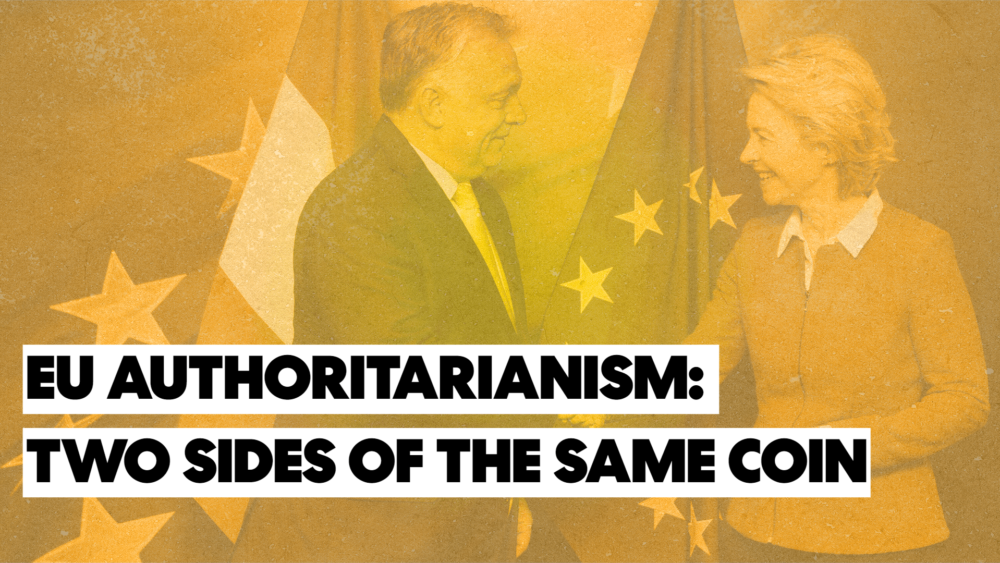DiEM25’s Coordinating Collective’s view on Hungary
After 12 years of Viktor Orbán’s autocracy and the tremendous damage he has done to Hungary, its minorities and immigrants, the European Union is threatening to expel the country from the alliance. We can agree that certain parameters need to be met in order to keep countries from sliding into fascism. But talking about expelling a country from the EU at this very moment is just a cherry on top of the EU’s hypocrisy pie.
Orbán has been trying to build this far-right alliance for a long time, which would have the potential to be extremely dangerous. On the other hand, let’s make no mistake – there have always been two kinds of authoritarianism: the far-right’s and the neoliberal Establishment’s. The former is being bravely led by Orban, Marine Le Pen, Recep Tayyip Erdoğan and others, while the latter is led by Emmanuel Macron, Ursula von der Leyen and many key figures of so-called “European democracy”.
Why does the European Council want to punish one while whole-heartedly cheering on the other? These two sides of the same coin are so deeply intertwined as to be completely dependent on each other. Fascists need neoliberals to feed them disillusioned voters looking elsewhere to satisfy their needs and rage at the system, while neoliberals need to scare people into voting them in order for fascists not to be elected.
Human rights violations are indeed widespread in some of the member states. And Poland and Hungary probably do deserve to suffer some form of consequence for their government’s actions. But then what of the Catalan referendum, when Spanish police brutally abused and prevented citizens from fulfilling voting duty? This was done under direct orders of the Spanish government. Isn’t that deserving of condemnation?
Expulsion regulations would be deeply problematic if they are to be controlled by current EU structures. What we mentioned above is merely a snapshot of the elitism that exists in Europe, where some nations are “more equal than others” inside of the Union. But let us also take Ukraine, Montenegro, Serbia and others as examples: to join the EU they need to fulfill a tremendous amount of criteria that aren’t met by the vast majority of current EU countries in the first place. And even meeting all of them doesn’t guarantee admission. For those reasons, we cannot be convinced that this is not yet just another case of systemic nationalism inside of Europe.
The European Council needs to be run by the people and for the people. Not by oligarchs and for them. This way, we would ensure that true democracy is in place and that regulations of possible ejection are fair. That’s only possible in a Europe that works towards cooperation, not competition. One that would be based on mutual aid, rather than exploitation of periphery countries by their larger neighbors. An EU where we would collectively care about the wellbeing of the citizens of countries that were threatened with expulsion.
People are not directly responsible for their government’s actions, and it’s up to them to democratically remove autocrats, guaranteeing their countries’ long-term membership in the EU. In the Union which we envision, it would be worth staying.
Do you want to be informed of DiEM25's actions? Sign up here















